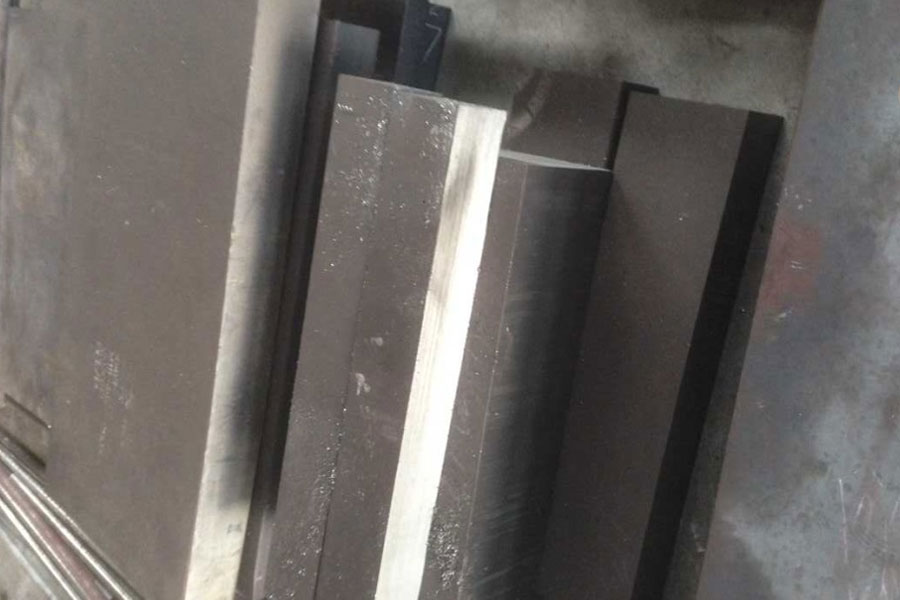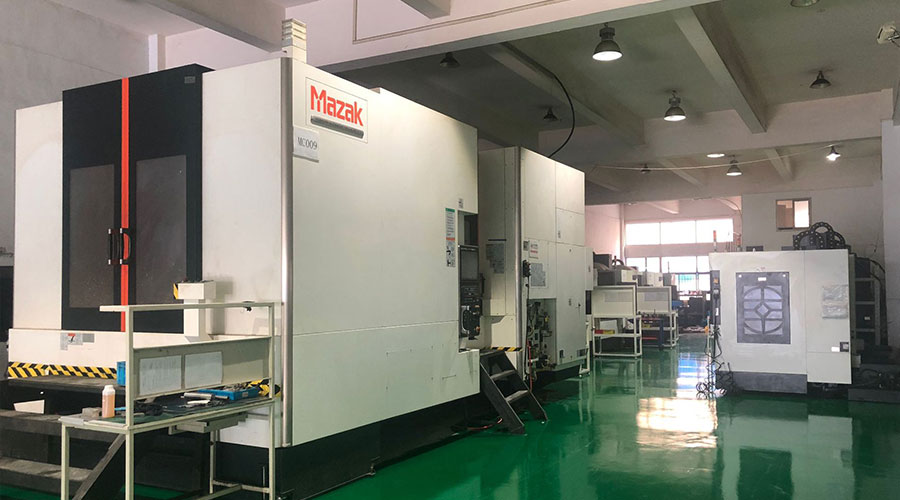The Difference Between High Speed Steel And Tungsten Steel
|
High-speed steel (HSS) is a tool steel with high hardness, high wear resistance and high heat resistance, also known as wind steel or front steel, which means that it can be hardened even if it is cooled in the air during quenching, and it is very sharp. It is also called white steel. |

High-speed steel is a complex alloy steel, containing carbide forming elements such as tungsten, molybdenum, chromium, vanadium, and cobalt. The total amount of alloying elements is about 10-25%. It can maintain high hardness even when high heat is generated by high-speed cutting (about 500℃), and the HRC can be above 60. This is the main characteristic of high-speed steel-red hardness. After being quenched and tempered at low temperature, carbon tool steel has high hardness at room temperature, but when the temperature is higher than 200℃, the hardness drops sharply, and the hardness at 500℃ has dropped to a level similar to the annealed state. , Completely lost the ability to cut metal, which limits the use of carbon tool steel to make cutting tools. The high-speed steel, because of its good red hardness, makes up for the fatal shortcomings of carbon tool steel.
High-speed steel is mainly used to manufacture complex thin-edged and impact-resistant metal cutting tools. It can also manufacture high-temperature bearings and cold extrusion dies, such as turning tools, drills, hobs, machine saw blades, and demanding molds.
Tungsten steel (hard alloy) has a series of excellent properties such as high hardness, wear resistance, good strength and toughness, heat resistance and corrosion resistance, especially its high hardness and wear resistance, even at a temperature of 500 ℃ Basically remain unchanged, still very high hardness at 1000 ℃.
Tungsten steel, whose main components are tungsten carbide and cobalt, accounts for 99% of all components, and 1% is other metals, so it is called tungsten steel, also known as cemented carbide, and is considered to be the teeth of modern industry.
Tungsten steel is a sintered composite material composed of at least one metal carbide. Tungsten carbide, cobalt carbide, niobium carbide, titanium carbide, and tantalum carbide are common components of tungsten steel. The grain size of the carbide component (or phase) is usually between 0.2-10 microns, and the carbide grains are bonded together using a metal binder. The bonding metal is generally iron group metal, and cobalt and nickel are commonly used. So there are tungsten-cobalt alloys, tungsten-nickel alloys and tungsten-titanium-cobalt alloys.
Tungsten steel sintering molding is to press the powder into a blank, then heat it into a sintering furnace to a certain temperature (sintering temperature), keep it for a certain time (holding time), and then cool it down to obtain the tungsten steel material with the required performance.
①Tungsten-cobalt cemented carbide
The main components are tungsten carbide (WC) and binder cobalt (Co). The grade is composed of “YG” (the initials of the Chinese pinyin of “hard and cobalt”) and the percentage of the average cobalt content. For example, YG8 means that the average WCo=8%, and the rest is tungsten-cobalt cemented carbide of tungsten carbide.
②Tungsten-titanium-cobalt cemented carbide
The main components are tungsten carbide, titanium carbide (TiC) and cobalt. The grade consists of “YT” (the initials of the Chinese pinyin of “hard and titanium”) and the average content of titanium carbide. For example, YT15 means that the average TiC=15%, and the rest is tungsten carbide and cobalt tungsten-titanium-cobalt cemented carbide.
③Tungsten-titanium-tantalum (niobium) hard alloy
The main components are tungsten carbide, titanium carbide, tantalum carbide (or niobium carbide) and cobalt. This kind of cemented carbide is also called general cemented carbide or universal cemented carbide. The grade is composed of “YW” (the initials of the Chinese Pinyin of “hard” and “万”) plus a sequence number, such as YW1.
Tungsten steel has a series of excellent properties such as high hardness, wear resistance, good strength and toughness, heat resistance and corrosion resistance, especially its high hardness and wear resistance, which remain basically unchanged even at a temperature of 500°C. It still has a high hardness at 1000°C. Cemented carbide is widely used as a material, such as turning tools, milling cutters, drill bits, boring cutters, etc. The cutting speed of the new cemented carbide is hundreds of times that of carbon steel.
Link to this article: The Difference Between High Speed Steel And Tungsten Steel
Reprint Statement: If there are no special instructions, all articles on this site are original. Please indicate the source for reprinting:https://www.cncmachiningptj.com/,thanks!
 PTJ CNC shop produces parts with excellent mechanical properties, accuracy and repeatability from metal and plastic. 5 axis CNC milling available.Machining high-temperature alloy range inclouding inconel machining,monel machining,Geek Ascology machining,Carp 49 machining,Hastelloy machining,Nitronic-60 machining,Hymu 80 machining,Tool Steel machining,etc.,. Ideal for aerospace applications.CNC machining produces parts with excellent mechanical properties, accuracy and repeatability from metal and plastic. 3-axis & 5-axis CNC milling available.We will strategize with you to provide the most cost-effective services to help you reach your target,Welcome to Contact us ( [email protected] ) directly for your new project.
PTJ CNC shop produces parts with excellent mechanical properties, accuracy and repeatability from metal and plastic. 5 axis CNC milling available.Machining high-temperature alloy range inclouding inconel machining,monel machining,Geek Ascology machining,Carp 49 machining,Hastelloy machining,Nitronic-60 machining,Hymu 80 machining,Tool Steel machining,etc.,. Ideal for aerospace applications.CNC machining produces parts with excellent mechanical properties, accuracy and repeatability from metal and plastic. 3-axis & 5-axis CNC milling available.We will strategize with you to provide the most cost-effective services to help you reach your target,Welcome to Contact us ( [email protected] ) directly for your new project.
Link to this article:The Difference Between High Speed Steel And Tungsten Steel
Reprint Statement: If there are no special instructions, all articles on this site are original. Please indicate the source for reprinting.:Cut Wiki,Thanks!^^
